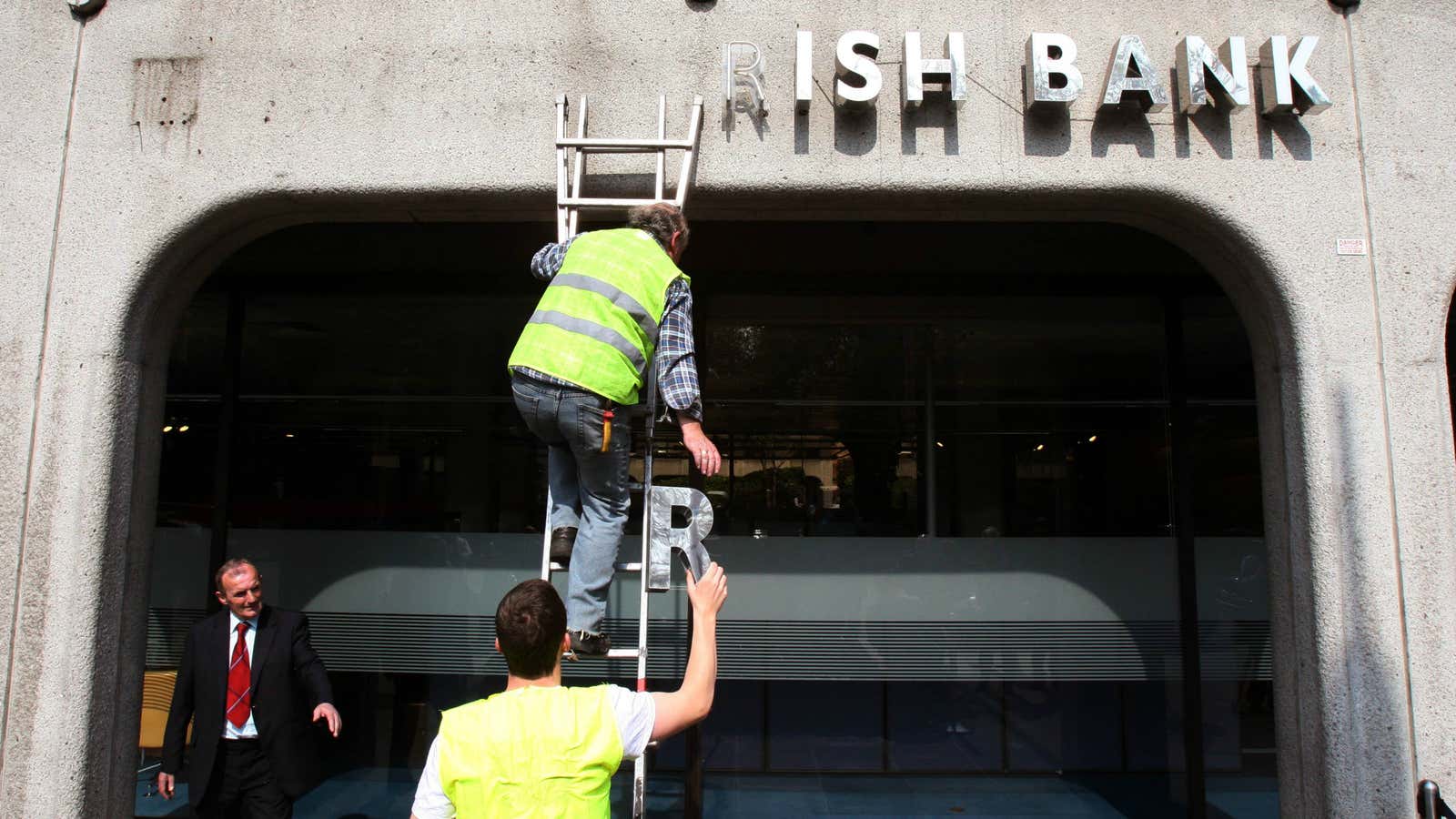Want a government bailout? It’s all about getting taxpayer skin in the game, according to phone conversations between two senior managers at the now defunct Anglo Irish Bank, which were released over the weekend by the Independent.
In September 2008, the Irish government stepped in to serve as the lender of last resort for the nation’s banks, offering a €400 billion guarantee meant to bolster faith in Ireland’s troubled financial system. Later that year, it pledged another €10 billion to the worst-hit lender, Anglo Irish Bank. The bailouts were part of a scheme that ultimately put the entire country at risk of bankruptcy and forced Ireland to take its own bailout from the European Union and International Monetary Fund.
But the phone conversations between John Bowe, then head of capital markets for Anglo Irish, and Peter Fitzgerald, formerly head of retail banking, indicate that bankers deliberately deceived the government about the extent of Anglo Irish’s financial problems.
The bank had asked the state for €7 billion to help it make payments as funding in global markets dried up. But Bowe said of the figure: “[I] picked it out of my arse.”
The bank, it seems, knew that the true cost of a bailout would likely be much higher. But the €7 billion figure would get taxpayer skin in the game, and buy Anglo Irish time. Bowe told Fitzgerald:
The reality is that we actually need more than that. But you know, the strategy here is, you pull them in, you get them to write a big cheque, and they have to keep, they have to support their money, you know…
They have invested a lot. If they saw, if they saw the enormity of it up front, they might decide, they might decide they have a choice. They might say the cost to the taxpayer is too high. If it doesn’t look too big at the outset. If it looks big, big enough to be important, but not too big that it kind of spoils everything, then, then I think you have a chance. So I think it can creep up.
Moreover, Bowe and Fitzgerald appeared to know that the bank would never be able to return that €7 billion. Says Bowe on the call, “So, so it’s bridged until we can pay you back. Which is never.”
Guaranteeing the bad debts of Anglo Irish, the Bank of Ireland, and Allied Irish Bank ultimately pushed the Irish government toward a sovereign bailout. Critics have argued that the government should have let the banks default on their uninsured debts, because Ireland’s sovereign financial standing would have remained intact. These conversations suggest that the Irish government never knew the full extent of the financial system’s problems in the first place.
Hindsight is 20-20, but the Irish government certainly got the wool pulled over its eyes.
Listen to all the recordings here.
